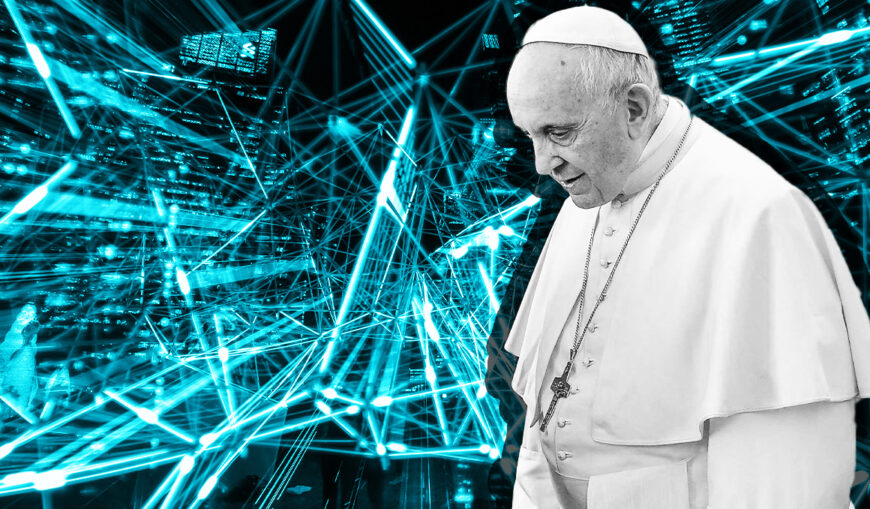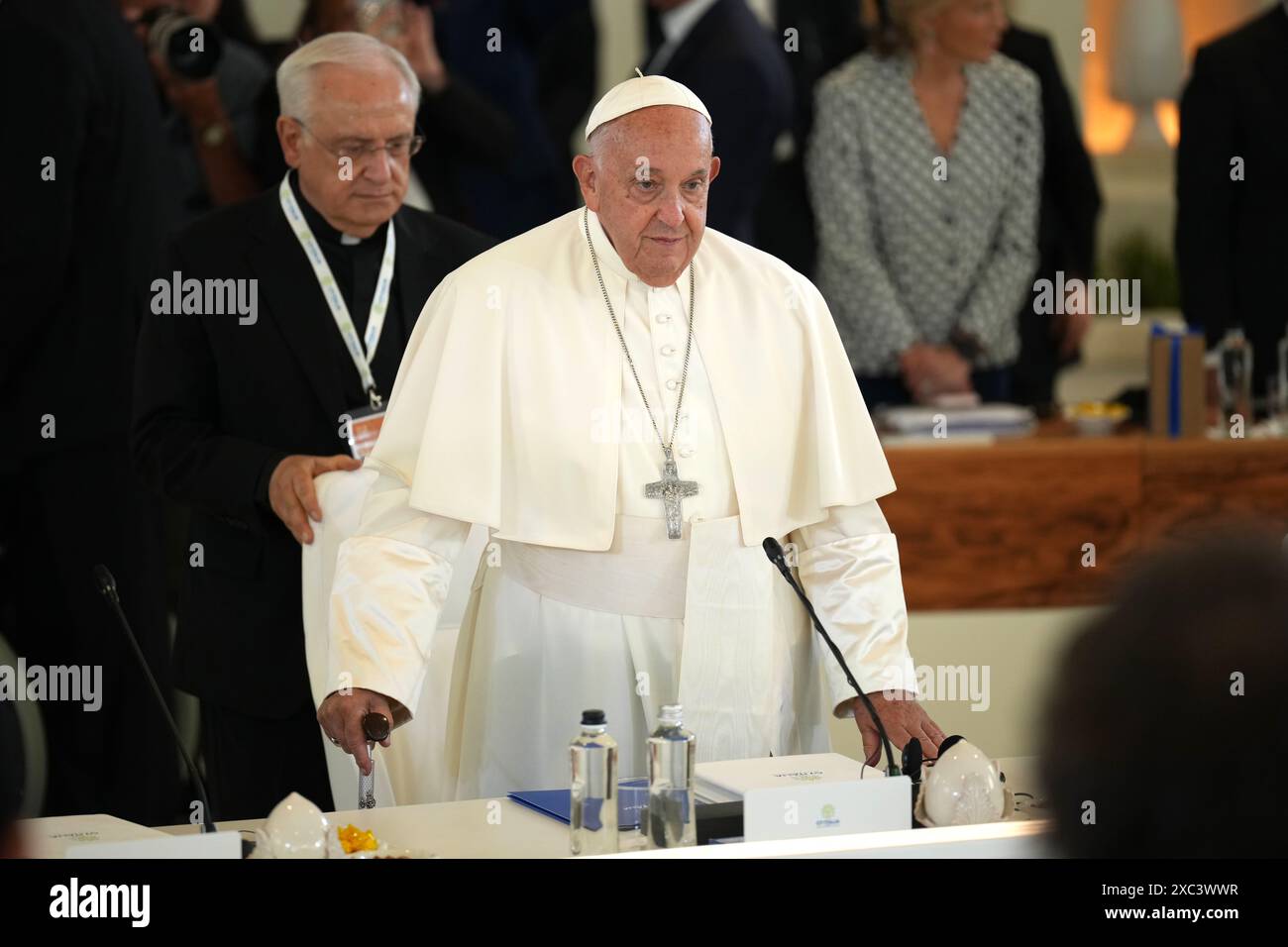Is Artificial Intelligence a Blessing or a Threat? Pope Francis, in his profound reflections, unequivocally acknowledges the transformative potential of AI while simultaneously issuing a clarion call for its ethical and responsible deployment, underscoring the critical need to safeguard human dignity and the common good. This stance reflects a deep understanding of the epochal change that AI is ushering in, a change demanding careful consideration and proactive measures.
The pontiff, a figure of global influence, has consistently championed the benefits of technology, recognizing its capacity to democratize access to knowledge, accelerate scientific research, and potentially alleviate arduous labor through automation. However, his pronouncements are laced with caution, stemming from the disruptive possibilities and ambivalent effects that AI presents. The Vatican's doctrine and cultural offices have expanded upon the Pope's warnings, releasing a document that delves deeper into the ethical challenges posed by artificial intelligence. This ongoing discourse reflects a concerted effort to guide the development and implementation of AI in a manner that aligns with human values and societal well-being.
Pope Francis, at the forefront of this critical dialogue, has not shied away from addressing global leaders, urging them to collectively shape the future of AI. His address to the G7 summit in Borgo Egnazia, Italy, on June 14, 2024, marked a historic moment, as he became the first Pope to address the forum. The summit, a gathering of leaders from the US, UK, Italy, France, Canada, Germany, and Japan, provided a crucial platform to discuss the ethical dimensions of AI. In his remarks, he emphasized that human dignity must be the guiding principle in all AI-related decision-making. Furthermore, Pope Francis is advocating for a binding international treaty to regulate the development and deployment of AI, a measure that would ensure its alignment with human values such as compassion, mercy, and forgiveness.
| Topic: | Artificial Intelligence and Ethical Considerations |
| Focus: | The role of Pope Francis in advocating for ethical AI development and use. |
| Key Issues: |
|
| Key Figures: |
|
| Key Events: |
|
| Themes: |
|
| Reference: | Vatican News |
The pontiff's words are particularly poignant when considering the potential for AI to exacerbate existing societal inequalities. He warned that the current model does not appear to favor investment in helping the slow, the weak, or the less talented find opportunities in life. Consequently, he argues that we cannot allow AI to reinforce this paradigm. The implications of these concerns are far-reaching, and the stakes are incredibly high. The potential for AI to transform human society is immense, but as Pope Francis recognizes, the risks are equally significant. The Pope recognizes, however, that artificial intelligence could enable a democratization of access to knowledge, the exponential advancement of scientific research and the possibility of giving demanding and arduous work to machines. AI must only be used to benefit humanity, and it should be used to address the complex problems facing the world.
Pope Francis dedicated his message for the 57th World Day of Peace, on January 1, 2024, to artificial intelligence and peace, urging humanity to cultivate the wisdom of the heart. This wisdom, he argues, can help us "to put systems of artificial intelligence at the service of a fully human communication." The theme of the 2024 World Day of Social Communications, "Artificial Intelligence and the Wisdom of the Heart: Towards a Fully Human Communication," further underscores the imperative of grounding technological advancements in human values.
This call to action isn't new; the Vatican has been actively shaping a discourse on the ethical use of AI. As the Pope has stated, the global scale of artificial intelligence demands the responsibility of sovereign states to regulate its use. In addition to his calls for international cooperation, the Vatican has also issued Guidelines on Artificial Intelligence, for the Vatican City State, establishing ethical guidelines for the technology. This proactive approach underscores the Vaticans commitment to ensuring that AI serves the betterment of humanity. The release of the document is just one step in the Churchs plan to take action and create a set of values that are to be held by all. Cardinal Michael Czerny emphasized that, like any other product of human ingenuity, artificial intelligence is acceptable if it serves the common good, protects the inalienable value of the human person and promotes fundamental rights.
The potential for misuse is a constant threat. Pope Francis himself has become a target of AI misinformation. A deep fake image of him wearing a stylish white puffer jacket went viral, highlighting the risks of this emerging technology. It serves as a stark reminder of the need for caution and vigilance in the digital age. The incident serves as a potent reminder that, without robust ethical frameworks and responsible deployment strategies, AI could be used to spread misinformation, manipulate public opinion, and undermine trust in institutions.
As Pope Francis stated, the world is experiencing an "epochal change," with AI at its heart. His calls for ethical use and international collaboration are not merely suggestions; they are a call to action. His vision prioritizes human dignity, the common good, and the protection of fundamental rights. Robotics can make a better world possible if it is joined to the common good, in light of these concerns and in response to the call from Pope Francis, the global community must embrace this challenge with a sense of urgency and responsibility. The global community is urged to adopt a binding international treaty that regulates the development and use of AI.
The challenge is to harness the power of AI for good while mitigating its potential harms. The guidance given by Pope Francis, and the ongoing dialogues in the Vatican, are intended to encourage thoughtful dialogue, promote ethical development, and ensure that technology is used for the benefit of all. The goal is to ensure that AI becomes a tool for progress, justice, and peace, reflecting the wisdom of the heart and serving humankind.


